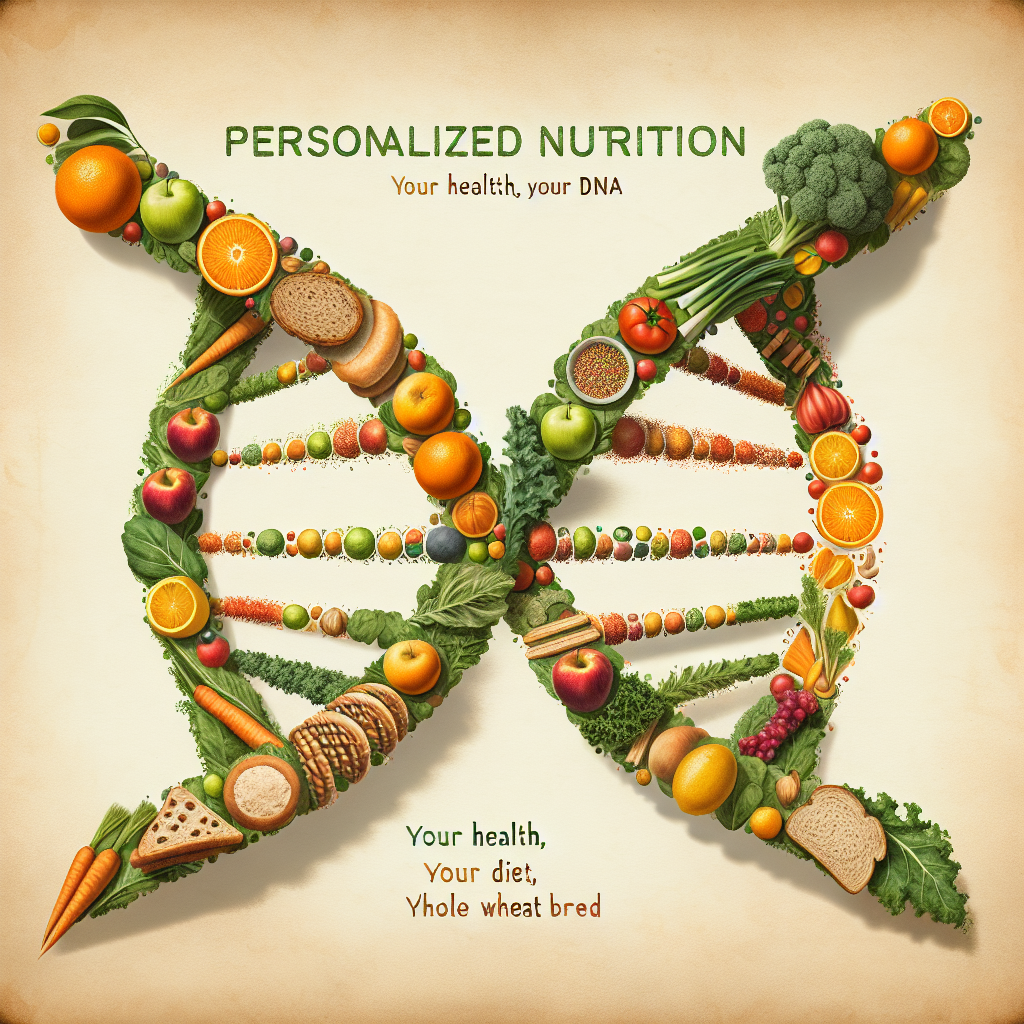### Personalized Nutrition: Your Health, Your Diet, Your DNA
The field of nutrition has come a long way from general dietary recommendations to a more personal, scientifically-backed approach – **Personalized Nutrition**. This new and trending topic is all about tailoring your diet based on your unique genetic makeup.
#### Decoding the DNA-Diet Connection
Each individual’s genetic makeup is unique, just like fingerprints. This uniqueness plays a vital part not only in deciding our physical attributes but also impacts our health and lifestyle choices, including our dietary preferences and needs.
Genetics can influence the risk of certain diseases such as diabetes, heart disease, and obesity. It can determine how we metabolize specific nutrients, our tolerance to different types of foods, and even allergic reactions. For instance, lactose intolerance caused by a lack of the enzyme lactase is a well-documented genetic condition.
Similarly, people with the MTHFR gene might have difficulty processing folic acid, a form of vitamin B9, and may benefit from consuming 5-MTHF directly – the active form of folic acid that’s easier to metabolize.
#### Personalized Nutrition Explained
Personalized nutrition combines our knowledge of genomics, nutrition, and health, enabling us to make more informed dietary decisions. But, how exactly does it work?
1. **Genetic Testing**: The process begins with a simple genetic test, usually done by a saliva sample, that is analyzed to determine your genetic variations.
2. **Nutritional Assessment**: Then, a nutritional assessment identifies dietary habits, food preferences, and lifestyle factors that could impact your diet.
3. **Diet Planning**: Based on genetic testing and nutritional assessment, a personalized diet plan is designed to address the individual’s unique nutritional needs.
#### Benefits of Personalized Nutrition
#### Optimal Nutrient Absorption:
Since personalized nutrition targets the individual’s unique genetic structure, it can aid in enhancing nutrient absorption, which may often be compromised with generic diet plans.
#### Disease Prevention:
A diet tailored to an individual’s genes helps reduce the risk of diseases that the person may be genetically predisposed to, such as obesity, heart diseases, or diabetes.
#### Lifestyle Management:
Knowing your genetic predispositions can empower you to take preventive measures and leverage the potential of personalized nutrition to manage your overall lifestyle better.
In conclusion, personalized nutrition provides an innovative way to optimize your diet according to your DNA, creating a game changer in the field of nutrition and health promotion. By integrating genetics into dietary planning, personalized nutrition offers a scientifically-backed approach to promoting health and preventing disease.
Remember, getting your DNA tested is a simple process, but interpreting the data requires expert advice. So, always seek a qualified health professional or a registered dietitian who specializes in nutrigenomics to help you embark on this exciting journey of personalized nutrition.
> *Disclaimer: This article is for informative purposes only and does not replace professional medical advice. Always consult with healthcare professionals before making any changes to your diet or health routine.*
*Word Count: 482*


